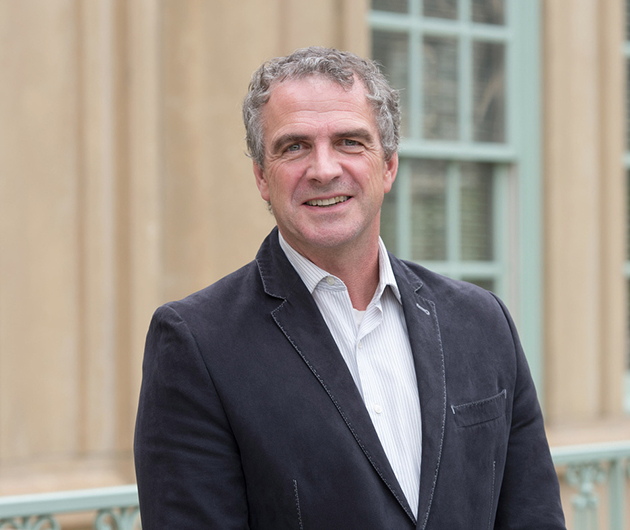Researchers at the University of King’s College (King’s) and the universities of Alberta, Ottawa, Calgary, Regina and Memorial have teamed up to win a three-year Partnership Development Grant from the Social Sciences and Humanities Research Council (SSHRC) of Canada for their project “Advancing Impact Assessment for Canada’s Socio-Ecological Systems.” The award, $200,000, adds to a financial commitment from Canada’s Impact Assessment Agency of Canada (IAAC) of nearly $500,000, along with over $50,000 of in-kind contributions from other partnering universities, and public and private sector organizations.
The project will bring new voices and new perspectives to how Canada will proceed with what was formerly know as Environmental Assessment. It is now referred to as Impact Assessment (IA).

Dr. Ian Stewart, professor in the History of Science and Technology program at King’s, is part of a SSHRC-funded research team that will consider Canada’s next Impact Assessment (IA).
IA is normally thought of in terms of applied natural sciences and is left to bio-physical scientists and engineers as they seek to minimize potential negative environmental impacts while sustainably developing projects such as in our natural resources, energy and infrastructure sectors. But according to Dr. Ian Stewart, assistant professor in King’s History of Science and Technology (HOST) program, “across the country, in our Indigenous communities, government ministries, company board rooms, and citizens’ groups, expanding conversations are underway about what is meant by ‘impact,’ how we should ‘assess’ it, who should do so, and to what ends.”
The project comes on the heels of a heated debate during last year’s federal election concerning the new Impact Assessment Act (2019). That legislation, in keeping with new ways of thinking about IA going on around the world, has opened up opportunities for scholars working in Canada’s social sciences and humanities fields to provide deeper and more coordinated input into those conversations, especially as we become more and more aware that we cannot separate the ‘social’ from the ‘ecological’ impacts of our actions. Encouraging that sort of input is a central goal of the project.
Dr. Stewart says, “It is vital that these conversations begin in earnest to consider broader issues such as socio-environmental justice, including how communities can have a stronger voice. They are the ones who usually bear the greatest risks of social and ecological degradation from our development decisions.”
Along with Dr. Debra Davidson (Professor of Environmental Sociology, University of Alberta), Dr. Stewart will serve as co-director of the project, which will include the creation of Canada’s first pan-Canadian Virtual Network of Expertise and Dialogue on Impact Assessment (VNEDIA), in close partnership with Dalhousie Libraries’ GIS & Data Services Centre.
King’s is no stranger to national and international networking projects in the field of Science and Technology Studies. In collaboration with Dalhousie University, King’s hosted and was the organization centre for two other highly successful projects—the Strategic Knowledge Cluster called Situating Science (2007-14), and the SSHRC-funded Cosmopolitanism and the Local in Science and Nature (2014-18), both directed by HOST professor Dr. Gordon McOuat. “It was the success of these initiatives,” recalls Dr. Stewart, “that gave me the courage to conceive of this project as a natural fit for what we do in HOST and at King’s generally.” Along with senior scholars from 10 other universities across the country, Dr. McOuat will serve on the project’s Academic Advisory Committee.
University of King’s College President William Lahey is delighted with the project.
“If we truly want impact assessment to holistically understand and address the impacts of resource development on ecosystems and communities, the humanities as well as the physical and social sciences need to be deeply involved,” he says. “It is therefore not only wonderful for King’s but promising for Canada that Dr. Stewart is co-leading this project with Dr. Davidson on how socio-environmental justice can be advanced through a new approach to impact assessment.”

